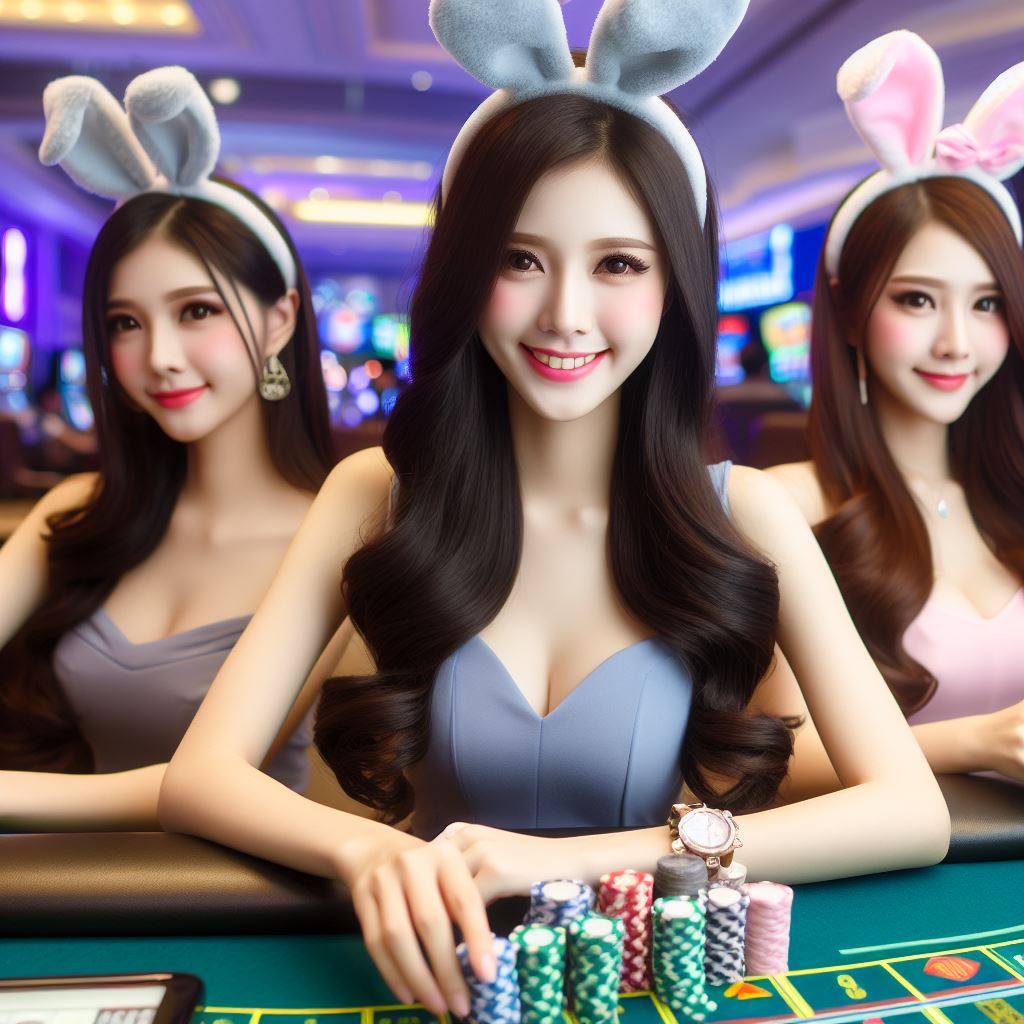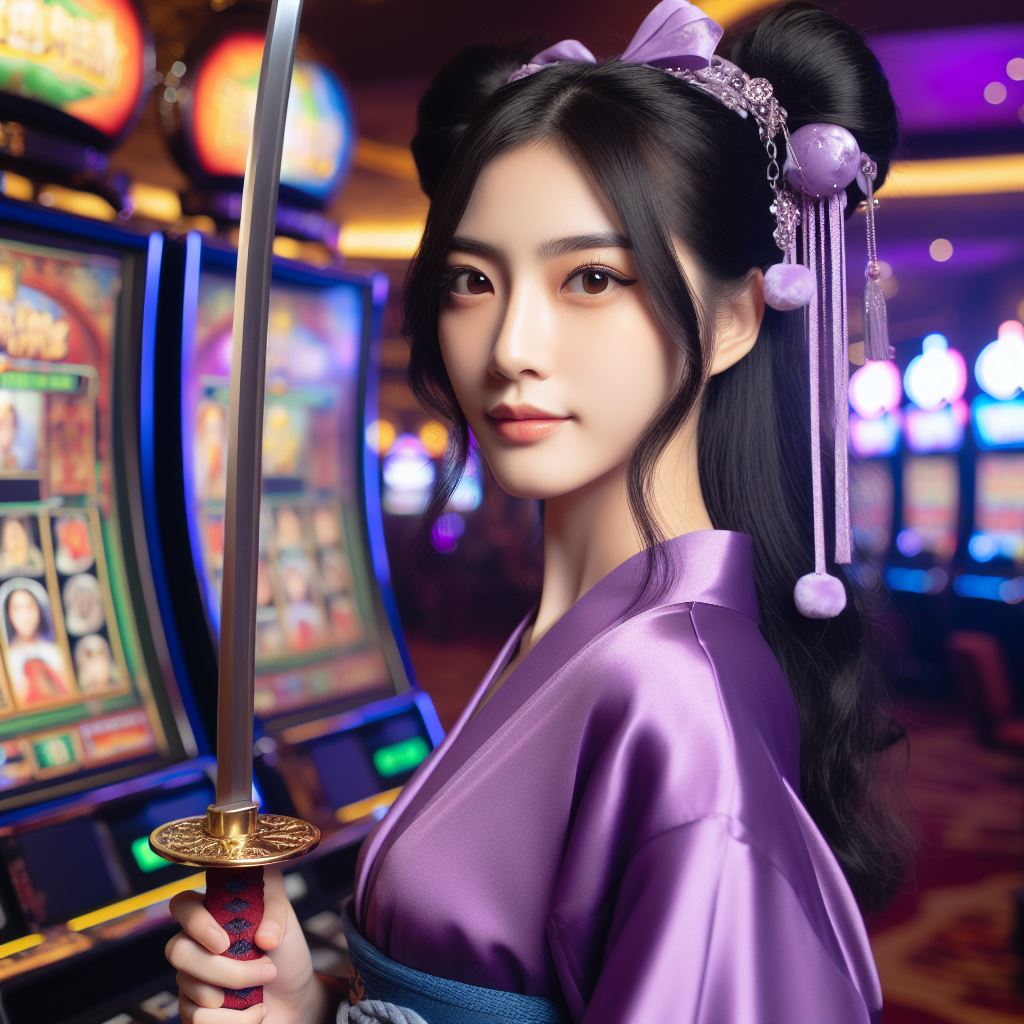Keajaiban Teknologi Slot Terbaik merupakan judul pada artikel kami hari ini. Kami ucapkan Slamat datang di steveheimoff.com Revealing the World of Gambling Through Words, Strategies, and Real Stories pembahasan menarik tentang Dalam beberapa tahun terakhir. Industri perjudian online telah menyaksikan perkembangan teknologi yang luar biasa. khususnya dalam hal grafis dan animasi dalam slot online. Mesin …
Continue reading Keajaiban Teknologi Slot Terbaik: Evolusi Grafis dalam Slot Online
Mengenal Berbagai Casino Online: Jenis Permainan dan Trik
Mengenal Berbagai Casino Online merupakan judul pada artikel kami hari ini. kami ucapkan selamat datang di steveheimoff.com. Revealing the World of Gambling Through Words, Strategies, and Real Stories pembahasan terbaik tentang Casino online telah merevolusi industri perjudian, memberikan akses yang mudah dan nyaman ke berbagai jenis permainan judi dari seluruh dunia. Dengan hanya beberapa klik, …
Continue reading Mengenal Berbagai Casino Online: Jenis Permainan dan Trik
Strategi Menang Casino Online: Rahasia Para Ahli
Strategi Menang Casino Online merupakan judul pada artikel kami hari ini kami ucapkan selamat datang di steveheimoff.com. Revealing the World of Gambling Through Words, Strategies, and Real Stories pembahas menarik tentang Dengan popularitas yang semakin meningkat dari casino online, banyak pemain yang mencari cara untuk meningkatkan peluang mereka dalam memenangkan permainan. Meskipun keberuntungan memainkan peran …
Continue reading Strategi Menang Casino Online: Rahasia Para Ahli
Eksplorasi Menuju Kemenangan Slot: Fakta dan Strategi Terbaik
Eksplorasi Menuju Kemenangan Slot merupakan judul pada artikel kami hari ini. kami ucapkan selamat datang di steveheimoff.com Revealing the World of Gambling Through Words, Strategies, and Real Stories pembahasan menarik tentang Permainan slot telah menjadi salah satu permainan kasino paling populer di seluruh dunia, baik di kasino darat maupun dalam bentuk slot online. Tetapi, di …
Continue reading Eksplorasi Menuju Kemenangan Slot: Fakta dan Strategi Terbaik
Tren Terbaik Slot Online: Desain dan Tema Slot Online
Tren Terbaik Slot Online merupakan judul pada artikel kami pada hari ini. kami ucapkan selamat datang di steveheimoff.com Revealing the World of Gambling Through Words, Strategies, and Real Stories pembahasan menarik Slot online telah menjadi salah satu bentuk hiburan paling populer di dunia perjudian digital, menawarkan pengalaman yang kaya akan grafik dan penuh dengan inovasi. …
Continue reading Tren Terbaik Slot Online: Desain dan Tema Slot Online
Eksplorasi Menguji Keberuntungan Slot: Perjalanan Seru di Dunia
Eksplorasi Menguji Keberuntungan Slot merupakan judul pada artikel kami hari ini. kami ucapkan selamat datang di steveheimoff.com. Revealing the World of Gambling Through Words, Strategies, and Real Stories pembahasn menarik tentang Dunia slot online adalah medan yang tak terbatas, di mana para pemain berlomba-lomba untuk meraih keberuntungan besar dan sensasi yang tak terlupakan. Dalam artikel …
Continue reading Eksplorasi Menguji Keberuntungan Slot: Perjalanan Seru di Dunia
Rahasia Menemukan Slot Online: Tercapai Sebuah Kemenangan
Rahasia Menemukan Slot Online merupakan judul artikel kami pada hari ini. kami ucapkan selamat datang di steveheimoff.com. Revealing the World of Gambling Through Words, Strategies, and Real Stories pembahasan menarik tentang Slot online telah tumbuh menjadi salah satu segmen paling populer dan menguntungkan dalam industri perjudian. Dengan kemudahan akses dan beragam pilihan, permainan ini menarik …
Continue reading Rahasia Menemukan Slot Online: Tercapai Sebuah Kemenangan
Inovasi Terkini Slot Online: Apa yang Baru di 2024
Inovasi Terkini Slot Online merupakan judul pada artikel kami hari ini. kami ucapkan selamat datang di steveheimoff.com Revealing the World of Gambling Through Words, Strategies, and Real Stories Dalam dunia perjudian online, slot online terus berada di garis depan inovasi. Tahun 2024 tidak terkecuali, dengan pengembang perangkat lunak kasino yang mendorong batas-batas kreativitas dan teknologi …
Continue reading Inovasi Terkini Slot Online: Apa yang Baru di 2024
Perbandingan Platform Slot Online:Terpopuler di 2024
Perbandingan Platform Slot Online merupakan judul pada artikel kami hari ini. kami ucapkan selamat datang di steveheimoff.com Revealing the World of Gambling Through Words, Strategies, and Real Stories Seiring berkembangnya industri perjudian online, pemain kini memiliki banyak pilihan untuk bermain slot online. Dengan begitu banyak platform yang tersedia, mungkin sulit untuk mengetahui mana yang menawarkan …
Continue reading Perbandingan Platform Slot Online:Terpopuler di 2024
Ketika Hiburan Bertemu Keuntungan: Cinta Slot Online
Ketika Hiburan Bertemu Keuntungan merupakan judul pada artikel kami hari ini. kami ucapkan selamat datang di steveheimoff.com pembahasan menarik tentang Dalam dunia perjudian daring yang terus berkembang, slot online telah menjadi salah satu hiburan terpopuler bagi jutaan pemain di seluruh dunia. Tidak hanya menawarkan sensasi dan keseruan, tetapi juga potensi keuntungan besar yang dapat mengubah …
Continue reading Ketika Hiburan Bertemu Keuntungan: Cinta Slot Online









